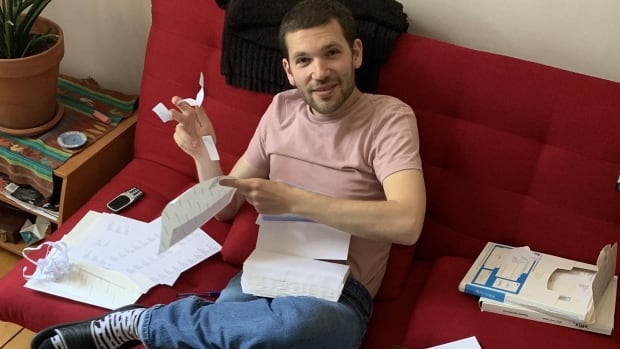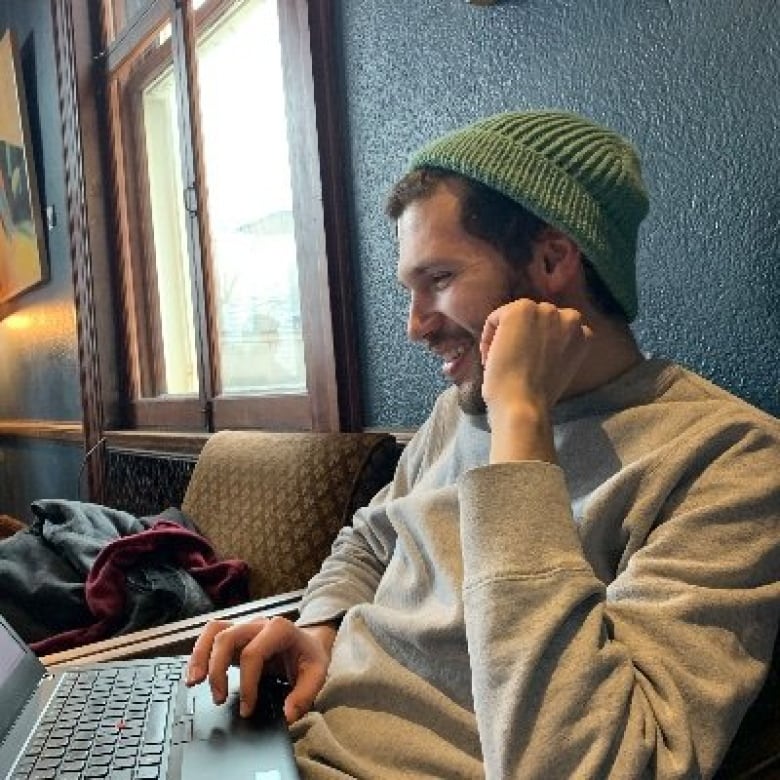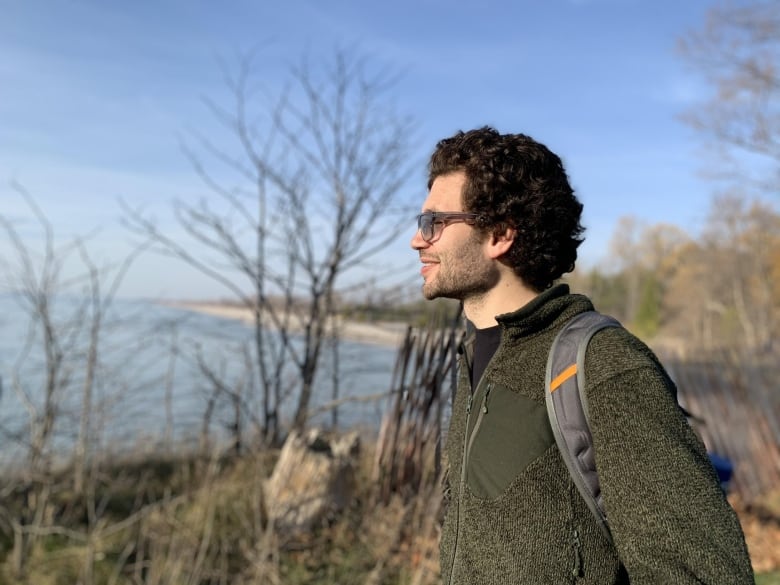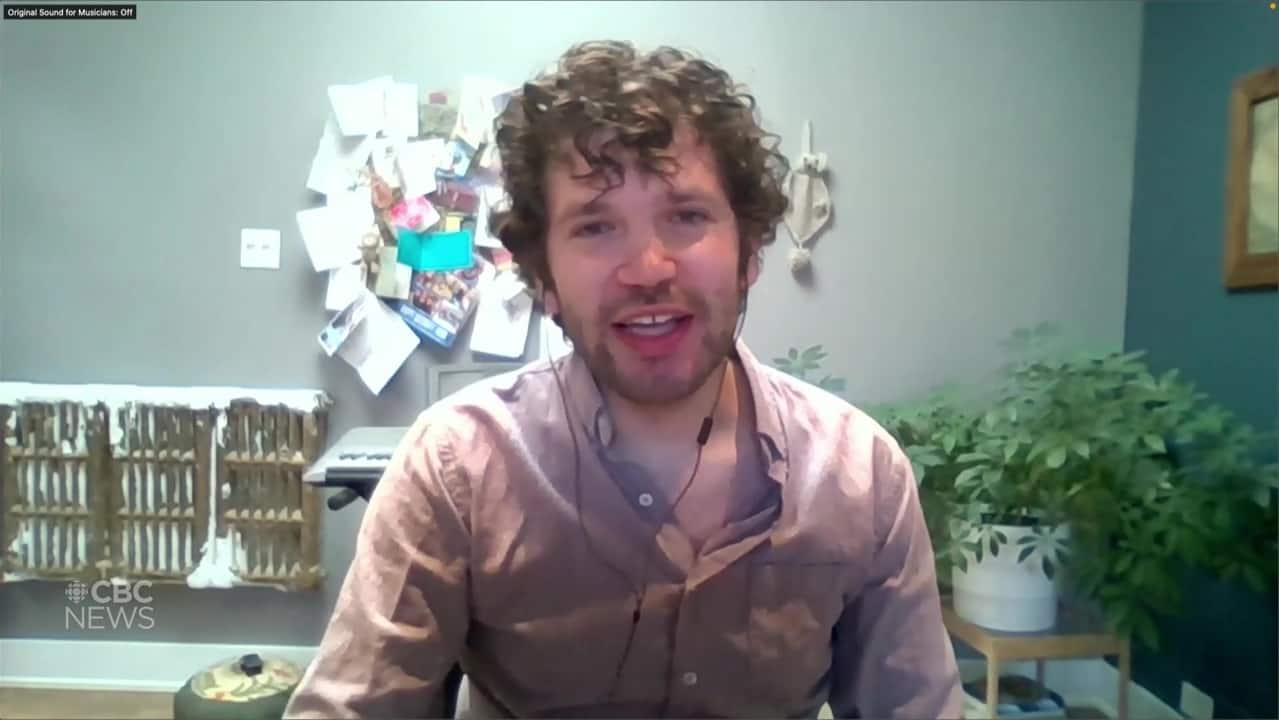
Aron Rosenberg decided to spend an entire year offline. That meant no internet, no emails and no smartphone.
His experiment happened to coincide with the start of the COVID-19 pandemic, when the rest of the world was becoming more internet-reliant than ever before.
His 365 days of being unplugged started on Jan. 1, 2020 and continued through Dec. 31, 2020. At the time, he was also knee-deep in doctoral work at McGill University.
Rosenberg — a former high school teacher in Vancouver who is now a faculty lecturer in the education department at McGill — wrote about his experience in Jacking Out: A Journal of a Year Spent Offline, which was released in July.
The book takes readers through Rosenberg’s low-tech life of phone calls and SMS text messages on a flip phone, paying bills by cheque, writing letters by hand, and conducting his doctoral research by perusing printed pages and having conversations.
Aron Rosenberg was inspired by his time as a Vancouver substitute teacher to disconnect for a full year to see how a disconnected life would look. He spoke to CBC’s Stephen Quinn about the experience.
Rosenberg says he loved being offline but he has some advice for others who might be thinking about doing the same: change your habits a little at a time.
“I think that it’s much more sustainable and realistic to try to take more moderate steps to curb tech use, but imagine not having to check your email for a year. It’s quite a pleasure,” he told Stephen Quinn, host of CBC’s The Early Edition.

Learning from students
Rosenberg says he got the idea to go offline while teaching English and theatre at King David High School in Vancouver. During his four-year tenure there, he says he saw how the internet and cellphones were important to his students in a way that previous generations would find difficult to understand.
“The flip side of that is, I realized working in high schools that students really … feel a bit of a dependence on their phone in a way that sometimes is actually really healthy but other times can become too intense for them and they have a hard time turning off,” Rosenberg said.
“So my experience of being offline was sort of inspired by my students. While I was a PhD student at McGill, I wanted to explore how my life would be different, and how my student experience would be different, if I didn’t use the internet for an entire year.”

A slower pace of communication
Rosenberg says friends and family tried to persuade him to put his project “on hold” as pandemic-related lockdowns were starting. While he says he did consider taking their advice, he went ahead with his plan. Initially, he says he felt like he was missing out on Zoom calls to stay in touch with people, but that soon waned.
For Rosenberg, communicating with others involved making phone calls and writing letters.
“I sent about 250 letters every month while I was offline,” he said. “I didn’t get quite as many in response, but it was a nice exchange to actually have that kind of slower-paced communication with my friends and family and colleagues.”
As for his doctoral work, Rosenberg went old school.
“All the research I was doing was with books and with going to the library, talking to friends, talking to experts, but I wasn’t able to do the kind of research that is much more common nowadays where you’re trolling the internet for all sorts of articles,” he said.
“I was doing the more slower-paced research that academics of maybe the earlier parts of the 20th century might have been more familiar with.”
Jacking Out: A Journal of a Year Spent Offline is written under the name of Aron Lee, which is Rosenberg’s middle name.
Reviewer Roopika Risam of Dartmouth College says “Lee’s memoir challenges readers’ beliefs about the power of connection (and disconnection), as well as the very nature of what it means to live a life ‘online.'”
The Early Edition8:16Man who spent a year offline
A former Vancouver high school teacher who spent a whole year offline has now written a book about it. Aron Rosenberg lives in Montreal now, and he shares his story with us.
